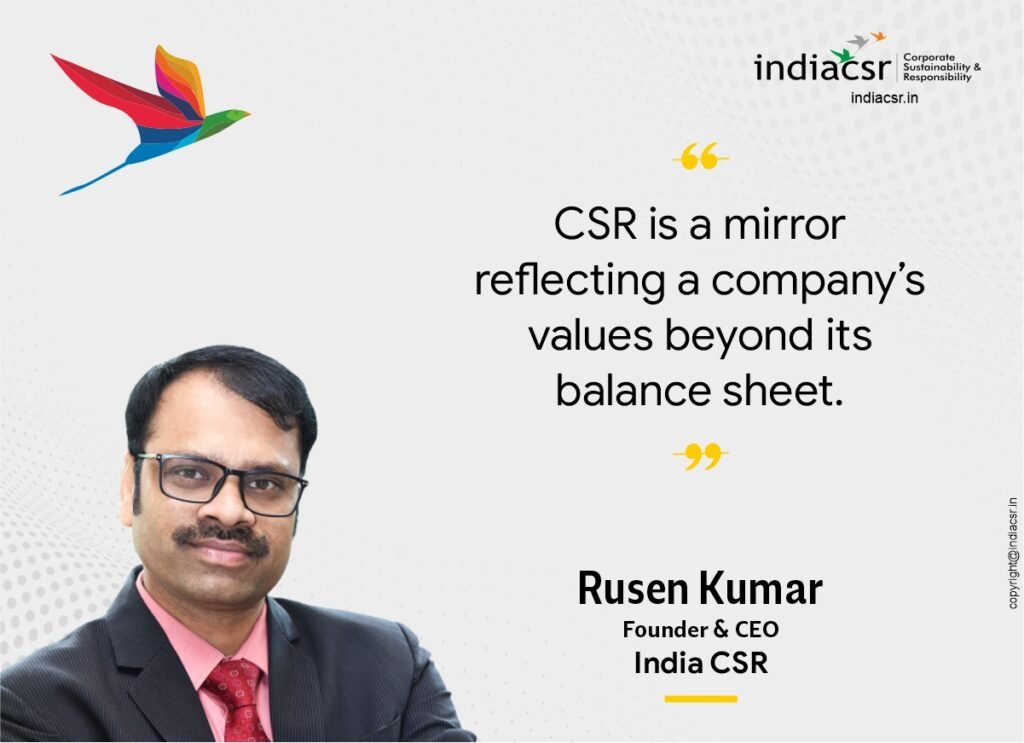This article explores what corporate means, its significance, operational dynamics, and the ethical responsibilities that underpin a sustainable business environment.
The term “corporate” encompasses much more than just a business structure. It signifies a range of activities, values, and cultures that define the operational ecosystem of an organization. A corporation is often associated with large businesses, yet the corporate concept applies to organizations of all sizes with structures that enable efficient functioning, compliance, and value creation.
Defining Corporate: A Foundation for Business Organization
A corporation is a structured entity that is legally distinct from its owners, allowing it to engage in contracts, acquire assets, and carry on business independently. Corporations can own property, incur debt, and operate within defined legal parameters that ensure compliance and protect individual shareholders. This separation creates a unique entity designed to operate as an organization beyond the individuals that constitute it.
Corporate entities primarily serve profit-driven goals. They operate with management teams, boards of directors, and a defined set of guidelines that dictate internal and external conduct. This structure establishes accountability, operational clarity, and legal protection, allowing the corporation to focus on growth, sustainability, and profitability.
The Purpose of a Corporate Structure
Corporate structures provide an organized system that enables businesses to handle complex operations, manage risks, and achieve growth. The establishment of roles, policies, and decision-making processes within a corporation allows for scalability. This structure facilitates both small and large-scale operations across different sectors, ranging from finance and technology to manufacturing and healthcare.
Incorporating as a corporation benefits businesses by offering limited liability. This means that individual shareholders are not personally liable for the debts and liabilities of the corporation. This liability protection encourages investors to support corporate enterprises, enabling businesses to access capital and grow.
*****
Corporate Governance: The Backbone of Ethical Business
Governance in a corporate environment refers to the rules, policies, and practices that guide an organization’s leadership. It aims to ensure transparency, accountability, and ethical conduct, balancing the interests of shareholders, employees, customers, and society.
Governance involves setting standards for decision-making, financial integrity, and regulatory compliance. “Good governance is the foundation of any successful corporate entity,” as business leaders often state, underscoring its role in fostering trust and integrity. A sound governance system reduces conflicts of interest, ensures compliance with laws, and strengthens the corporation’s reputation.
*****

Corporate Culture: Creating Identity and Unity
Corporate culture defines the unique environment within a company, reflecting its values, ethics, and internal dynamics. It is the “way things are done,” shaping everything from communication styles to employee behavior and customer relations. A strong corporate culture fosters employee loyalty, productivity, and alignment with the company’s goals.
A positive corporate culture promotes inclusivity, respect, and collaboration. This aspect of corporate life is often highlighted in company statements and mission objectives. “Our culture is what drives us,” many CEOs assert, emphasizing how vital
it is for attracting and retaining talent. By instilling core values, companies create a cohesive work environment where employees feel valued and motivated.
*****
The Role of Corporations in Economic Growth
Corporations are instrumental in driving economic growth by creating jobs, providing goods and services, and investing in local and global markets. Large corporations contribute significantly to the economy by producing a substantial portion of goods and services consumed worldwide. These entities also offer employment opportunities, playing a vital role in reducing unemployment rates and contributing to the welfare of society.
Corporations often invest in research and development (R&D), promoting innovation and technological advancement. Such investments drive new product development, improve service quality, and enhance operational efficiency. This cycle of innovation benefits consumers, encourages competition, and accelerates industry progress, establishing corporations as pillars of economic advancement.
*****
Corporate Social Responsibility (CSR): Extending the Corporate Impact
In recent years, the idea of Corporate Social Responsibility (CSR) has become a crucial element of corporate strategy. CSR encourages companies to take responsibility for their environmental, social, and economic impacts. Through CSR initiatives, corporations contribute to societal welfare by engaging in sustainable practices, reducing their carbon footprint, and supporting community projects.

For instance, many corporations undertake initiatives aligned with the United Nations Sustainable Development Goals, aiming to address issues like poverty, hunger, health, and climate change. CSR goes beyond charity; it integrates social responsibility into the core business model, often resonating with stakeholders. “CSR is a reflection of a company’s values beyond its balance sheet,” says Rusen Kumar, highlighting the depth of corporate influence in social betterment.
*****
Corporate Ethics: The Importance of Integrity in Business
Corporate ethics govern the moral standards of a business, influencing its decisions, practices, and reputation. Ethical principles in corporate conduct cover transparency, fairness, and responsibility, ensuring that corporations make decisions that benefit society and uphold legal standards.
Businesses today are increasingly held accountable by customers, regulators, and investors to act ethically. Ethical business practices build trust, strengthen brand loyalty, and minimize legal risks. “Ethics are the backbone of sustainable business,” emphasize corporate leaders who recognize that a reputation built on integrity can safeguard a company’s long-term success. An ethical corporation respects employee rights, ensures fair trade practices, and prioritizes consumer safety.
*****
Corporate Structure: Layers of Management and Decision-Making
A typical corporate structure involves multiple layers of management, creating a hierarchy of decision-making authority. This structure allows for specialization within departments such as finance, human resources, marketing, and operations. The board of directors sits at the top, guiding overall strategy, while executives manage day-to-day operations.
This hierarchy facilitates efficient resource allocation, streamlined processes, and accountability. Specialized departments allow companies to refine expertise, focusing on particular functions critical to their goals. For example, the finance department manages budgets and expenditures, while the marketing team promotes products and builds brand identity. Such a structure ensures that each aspect of the company aligns with its objectives, promoting growth and efficiency.
*****
The Corporate Workforce: Building Talent and Skills
The workforce is an integral part of the corporate structure, as employees drive productivity, creativity, and overall business success. Companies invest heavily in talent acquisition, training, and development to build a skilled and motivated workforce. Employee satisfaction and engagement are top priorities, as a motivated workforce is key to achieving corporate goals.
Professional development opportunities, such as workshops, certifications, and career advancement programs, are part of many corporate strategies. By investing in employees, corporations cultivate loyalty, reduce turnover, and foster innovation. “Our people are our greatest asset,” assert corporate leaders, acknowledging that a dedicated team is essential for maintaining competitiveness and achieving long-term success.
*****
Financial Structure in Corporates: Funding and Growth Mechanisms
Corporations rely on diverse financial mechanisms to secure funding and ensure growth. Publicly listed corporations can raise capital by issuing shares, allowing investors to become part-owners and share in the profits. Corporations may also use debt financing, such as bonds and loans, to support expansion projects.
The corporate financial structure is crucial in managing revenue, investments, and expenses. Financial reports, audits, and analysis ensure transparency and maintain stakeholder confidence. “Financial discipline drives sustainable growth,” say financial executives, emphasizing the importance of responsible financial management in sustaining corporate health and supporting expansion.
*****
The Digital Transformation of Corporate Practices
Technology has revolutionized corporate operations, enabling faster decision-making, enhanced productivity, and improved customer experiences. Digital tools, such as artificial intelligence, cloud computing, and data analytics, have streamlined processes, allowing corporations to adapt quickly to changing market demands. Digital transformation is no longer optional; it is an essential element of corporate strategy.
With digitalization, corporations can leverage data to gain insights, predict trends, and make informed decisions. “Data is the new currency,” some corporate leaders assert, acknowledging the competitive advantage that data-driven strategies provide. Embracing digital transformation enhances operational efficiency, supports innovation, and allows corporations to offer tailored solutions to their customers.
*****

Globalization: The Corporate Reach Beyond Borders
Corporate globalization has allowed companies to expand their reach, accessing new markets and creating a diverse customer base. Through international operations, corporations benefit from economies of scale, diversified revenue streams, and cultural insights. However, globalization also brings challenges, including compliance with different regulations, cultural adaptation, and competitive pressures.
International corporations often adapt their products and services to suit local markets. This localization strategy enhances customer satisfaction and enables corporations to build strong, culturally relevant brands across countries. Globalization, therefore, transforms corporations into global players, shaping economies and societies worldwide.
*****
Challenges in Corporate Environments
Despite their advantages, corporations face several challenges, including regulatory compliance, competition, and market volatility. Legal requirements often vary across regions, demanding constant updates to comply with industry standards and avoid penalties. Furthermore, corporations compete fiercely in saturated markets, requiring constant innovation and differentiation.
Maintaining a healthy work environment, managing employee expectations, and upholding corporate values are equally essential but challenging aspects. Balancing profitability with social responsibility is an ongoing debate. Leaders agree that “adaptability is key” in navigating these challenges, emphasizing the need for resilience and flexibility in corporate strategies.
*****
Corporate Transparency and Accountability
Transparency and accountability have become indispensable in the corporate landscape. Stakeholders demand visibility into a company’s actions, policies, and financial health. Corporate transparency involves clear reporting, regular audits, and honest communication, fostering trust and reliability.
Accountability is linked to responsibility in decision-making and holding executives and employees answerable for their actions. “Accountability defines trust,” business leaders often assert, underscoring that responsible conduct strengthens brand loyalty and enhances the corporation’s credibility in the eyes of stakeholders.
The Future of Corporate: Trends and Emerging Practices
As corporations evolve, emerging trends indicate a shift towards sustainable practices, digital innovation, and flexible work environments. Corporations increasingly prioritize ESG criteria, aligning business goals with sustainable development and ethical responsibility. Digital transformation will continue, with companies investing in AI, cybersecurity, and data analytics to stay competitive.
Flexible work models, such as remote work and hybrid structures, are becoming more common, reflecting changing employee preferences.
(India CSR)






















